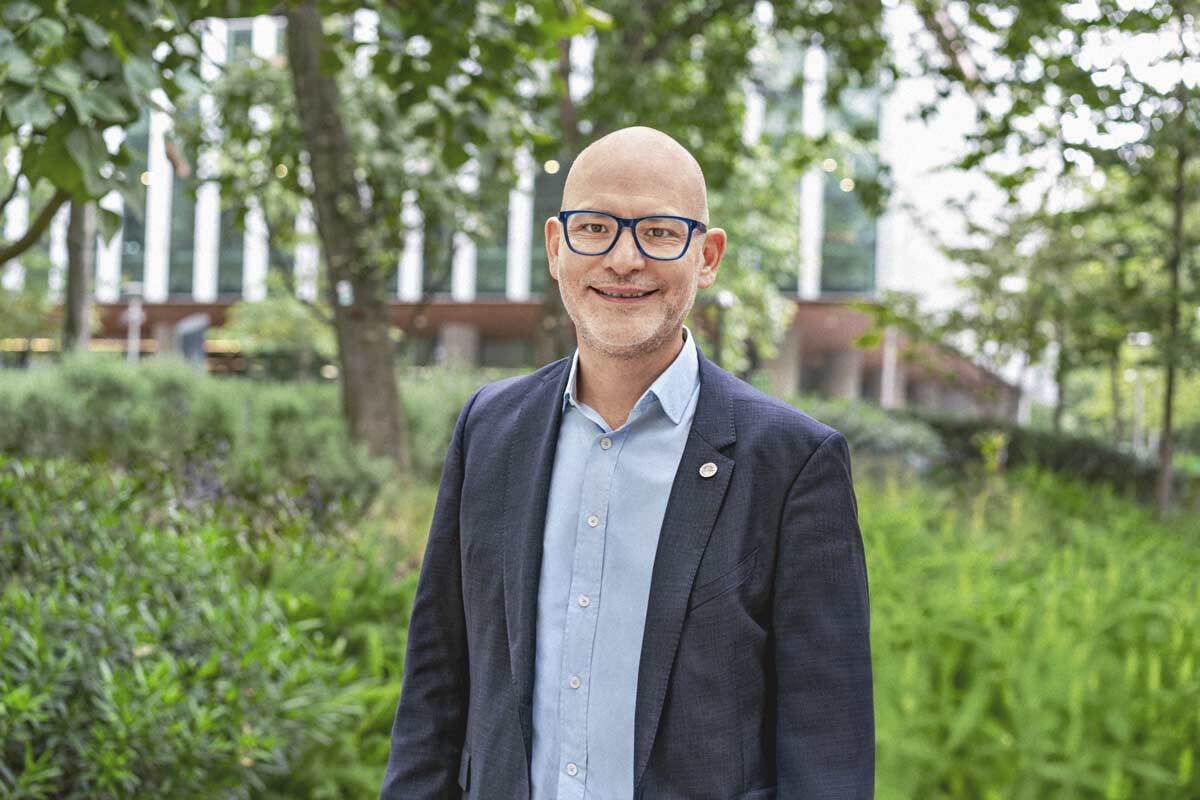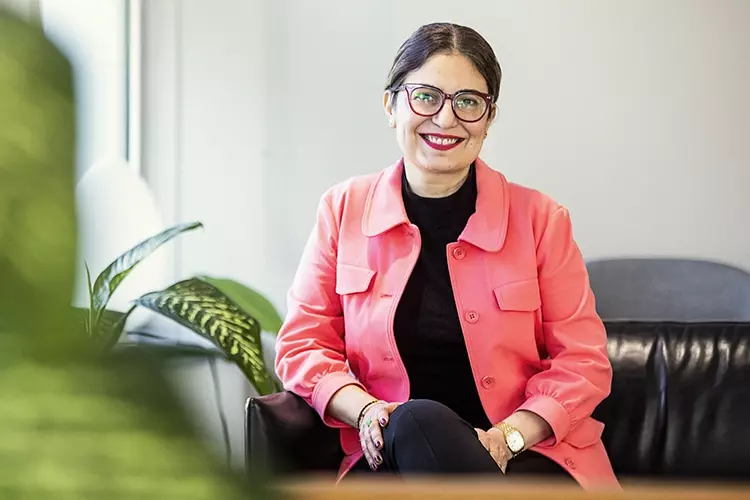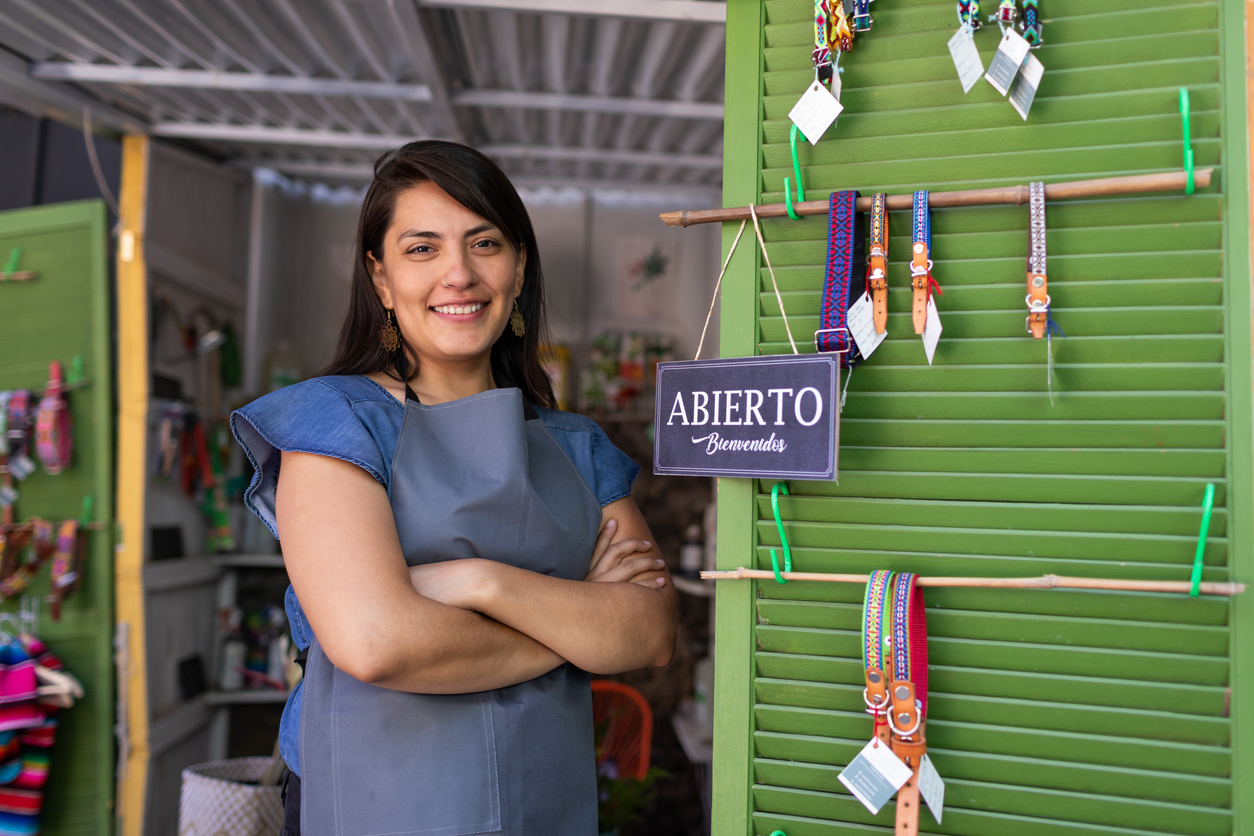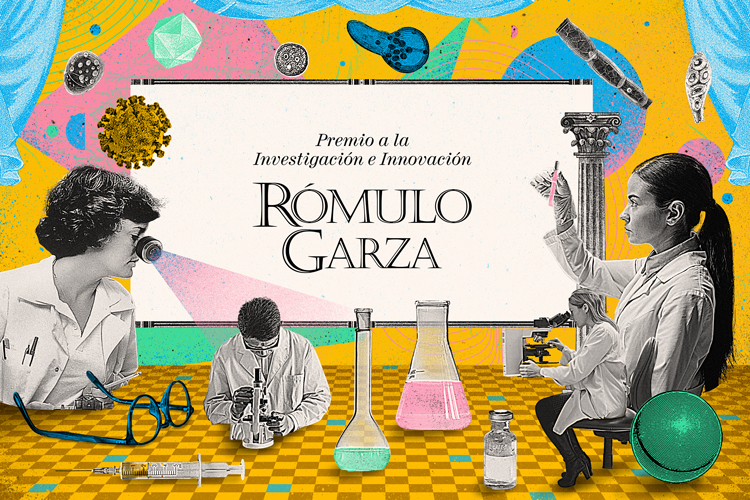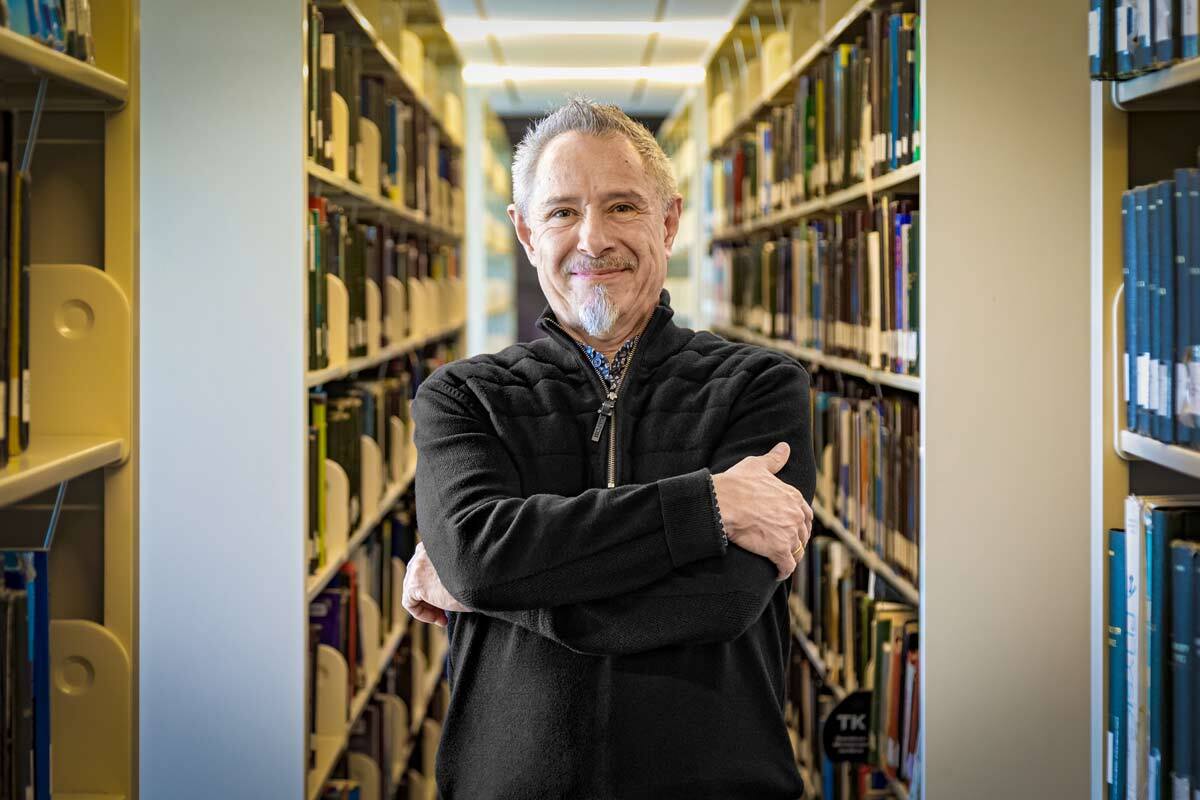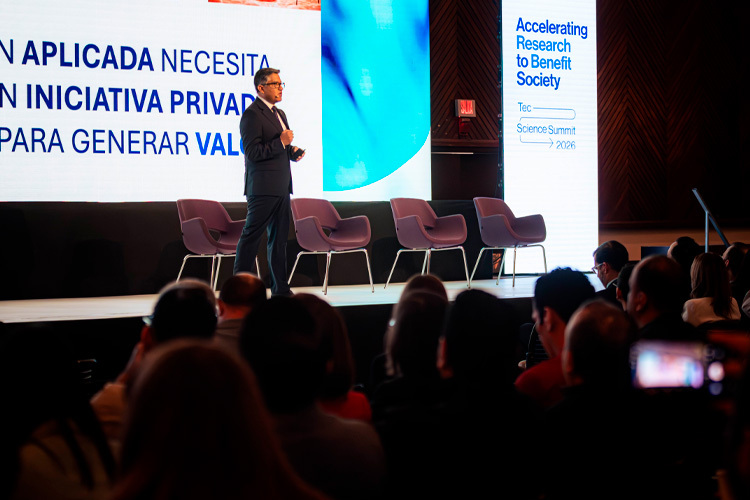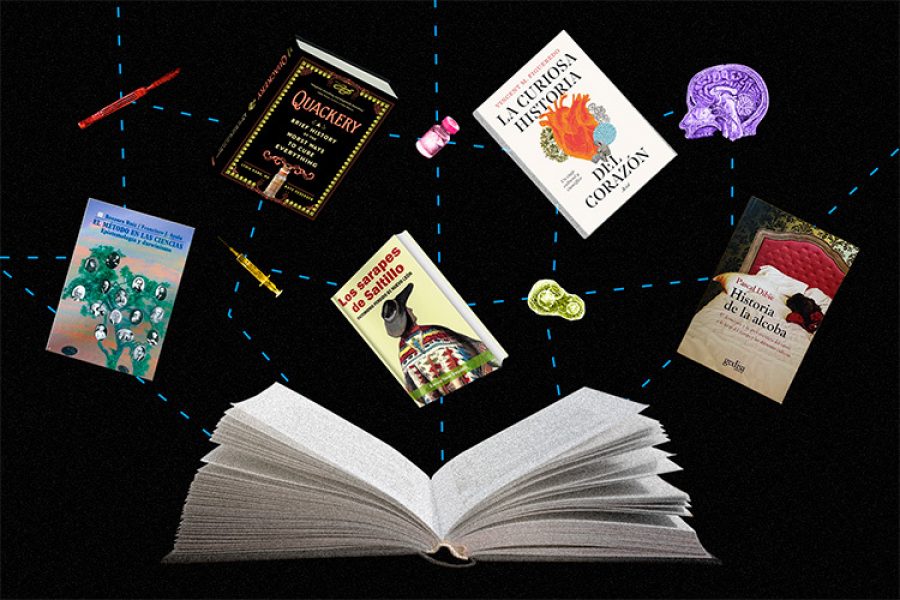In recent years, entrepreneurship has become so popular that it’s now a common term in contemporary vocabulary. However, 30 years ago, when José Ernesto Amorós began researching the topic, the term didn’t officially exist. “It wasn’t recognized by the Royal Spanish Academy (RAE), so I had to write an essay with some colleagues to get it added to the dictionary. And we did it!” the researcher celebrates.
Amorós is currently the Associate Dean of Faculty at EGADE Business School, the most renowned business school in Latin America. “We are the most globalized in the region, which gives a lot of visibility to entrepreneurship, one of the pillars of Tec de Monterrey, part of its DNA,” he says with pride about the university where he completed his bachelor’s and master’s degrees, and where he now also leads the Research Group on Entrepreneurship and Innovation with Impact.
At 54, Amorós was awarded the 2023 Rómulo Garza Prize in the Scientific Articles category. He is the author of more than 40 academic papers published in high-impact international journals, has been a visiting researcher at the World Institute for Development Economics Research of the United Nations University (UNU-WIDER), and has taken part in projects with the Inter-American Development Bank (IADB) and the World Bank. His enthusiasm and absolute passion for the field of knowledge to which he has dedicated his life are evident.
His passion took him abroad: he earned his PhD in Spain, served as an economic advisor to the Government of Chile, and conducted research at the University of Turku in Finland. His motivation to return to Mexico in 2016 was the chance to rejoin Tec with the launch of EGADE Business School. It also coincided with a pivotal moment in the country, “the greatest business consolidation, which would allow me to connect better with the entrepreneurial ecosystem and continue studying the phenomenon from here.”
Debunking Myths about Entrepreneurship
Some of your work focuses on debunking myths about entrepreneurs, such as the idea that there aren’t that many in Latin America…
In less developed countries, there’s much more entrepreneurship, but it’s out of necessity, because institutional conditions are different. In Latin America, for example, the population is vast, the labor market is less developed, the informal sector is substantial, and institutions often fail to provide security. There are many entrepreneurs, but most operate in very small businesses that lack growth prospects. On the other hand, we haven’t been very efficient in creating or adopting new technologies… This creates a different dynamic compared to entrepreneurship in Europe, for example.
And what is that contrast like?
In general, especially in Scandinavian countries that have achieved the so-called “welfare state,” where the labor market is very stable, there’s no strong incentive for people to start a business because they don’t need to: they live well, they have stable jobs. However, those who do become entrepreneurs benefit from excellent institutional conditions, which enable them to create powerful and productive companies with technological components and far greater growth potential.
That said, Latin America also has very interesting development hubs such as Mexico City, Buenos Aires, São Paulo, Santiago de Chile, and Bogotá, which have become local entrepreneurial ecosystems with great potential.
According to Amorós, political instability in Latin American governments and increased life expectancy have been key factors driving the rise of entrepreneurs over 50. This population, he argues, “should be supported by public policies and programs to help them navigate the bureaucratic barriers.”
What characteristics define this group of senior entrepreneurs?
They have social capital—relationships, contacts, and knowledge—as well as financial resources accumulated over the years. Another interesting aspect is that they interact not only with their own generation but also with others, thereby gaining broader relational capital. That’s not something you usually see in younger entrepreneurs.
So, is it better to start a business later in life?
I’m not saying starting young is bad, but there are many advantages to becoming an entrepreneur as a senior adult. We also have to consider that if life expectancy used to be 65 years, today we live to around 80; that means we have 20 more years to do a lot of things.
What role does education play in entrepreneurship?
Numerous studies have demonstrated that a university education and specialized training in entrepreneurship are highly beneficial when launching a project. This counters the myth that entrepreneurs are “born, not made.” We’ve romanticized the image of the entrepreneur who drops out of college because, as they say, “you don’t learn anything there.”
So, are entrepreneurs made?
Some people may be more extroverted, with an instinct or sensitivity that enables them to better assess business risks. But they’ll still need market knowledge, among many other things. There has never been a better swimmer than Michael Phelps. He had a unique body type and lung capacity. Was he born with it? Yes, but he never would have reached that level without training and developing those abilities the way he did.

Entrepreneurship Without a Recipe
What quality is essential for entrepreneurship?
Adaptability is the most important. Especially now, when we’re experiencing major changes with new technologies—particularly artificial intelligence. Entrepreneurs also need to adapt to political shifts, which are an everyday reality in Latin America, to demographic changes, and to the sustainability agenda.
How important is sustainability in entrepreneurship?
Today, it’s impossible to conceive of a new business without considering both the social and environmental dimensions. That requires adapting not only to political and social changes but also to the moral commitment to society.
Could we write the ABCs of entrepreneurship?
No, there’s no recipe for entrepreneurship. The idea of having a “good idea,” mixing in 10 grams of passion and some capital, has never worked, and I don’t think it ever will. Beyond adaptability, training, and the combination of a strong personality and knowledge, it’s also about learning how to connect them to create better processes, policies, and management practices.
As an expert studying entrepreneurship, would you dare to try it yourself?
I tried, but it didn’t work out. I was young and didn’t have capital. Now I prefer to invest, advise, and research.





At 54, Amorós is also part of a rock band where he plays electric guitar and bass. Whenever he gets the chance, he organizes a jam session with his two children.
Between Journeys, Learning, and Music
What would you say were the most decisive moments in your career?
Living in Spain from 2000 to 2005, it was a period of tremendous growth with the introduction of the euro and the consolidation of the European system. Economically, they were very good years. Being there allowed me to build countless contacts and exchanges with their university and business systems. Then I moved to Chile, bringing that experience with me, which allowed me to connect and join the Global Entrepreneurship Monitor. This project is now returning to Tec’s campus. We’re launching it next February, exactly 10 years after I arrived!
Although Amorós is originally from Mexico City, it’s hard to guess his accent: “Since I’ve lived in several Spanish-speaking countries, people tell me I sound like the guy who reads the news on CNN, in a somewhat unusual Spanish,” he laughs.
And how did your experiences abroad shape you personally?
I’ve always sought to have a more global vision of the world, and experiencing different cultures has shaped me as a person. It was very important to make my family part of that adventure—my wife, who has accompanied me throughout these journeys across different countries, and my children as well.
What other passions do you have besides research?
Something I’ve always pursued, since I was a kid, and never left behind, is music. I’ve been playing instruments since I was 11 years old. I studied music in high school, and later, in college, I was always involved in all the musical groups available. It’s been with me all my life: a passion for music.
At 54, Amorós is part of a rock band where he plays the electric guitar and bass. Whenever he gets the chance, he organizes jam sessions with his two teenage sons, ages 15 and 17. Beyond passing down his love for music, the researcher has also tried to instill in them the importance of education.
Did you find this story interesting? Would you like to publish it? Contact our content editor to learn more at marianaleonm@tec.mx
